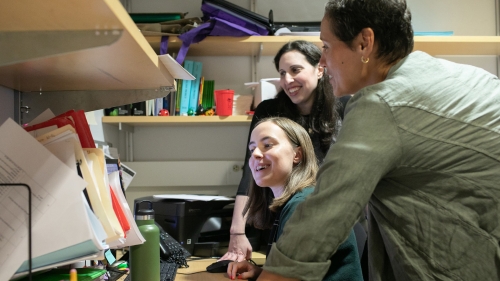Although 24% of White students in New York City high schools enroll in at least one AP mathematics course by the end of high school, only 13% of Black students do so.
Previous studies have suggested that disparities in AP enrollment are the result of pre-existing differences in academic preparedness, measured according to previous grades, standardized test scores, and course-taking patterns.
But NYU researchers say that studies that use these variables directly in statistical models when evaluating academic preparedness are inadequate, because studies may either omit relevant factors related to academic preparedness, or include extraneous variables.

Getty images/undrey.
They found that when comparing Black high school students to White students with similar academic preparedness, Black students are still less likely to enroll in AP math courses.
“Common measured indicators of academic background, such as previous course grades and standardized exam scores, might be only partially related to students’ academic preparedness for AP courses, and so, by holding these factors constant, traditional estimates are not necessarily comparing the enrollment rates of students with similar levels of academic preparedness for AP,” says lead author João M. Souto-Maior, a postdoctoral fellow at NYU Steinhardt.
To address these shortcomings, Souto-Maior and his co-author, Ravi Shroff, associate professor of applied statistics at NYU Steinhardt, developed their own definition of academic preparedness – students’ ex-ante probability that they would pass at least one AP math exam.
They analyzed NYC Department of Education longitudinal data from more than 40,000 public high school students in 9th grade in 2011 or 2012 and who advanced each year into the next grade until 12th grade in 2015 or 2016. Then, using detailed student- and school-level variables measured before AP math enrollment decisions occur (generally at the start of 11th grade), authors generated individual estimates of the ex-ante probability that each student would pass at least one AP math exam in grades 11 or 12, if they were to take at least one AP math course (i.e., AP Calculus AB, AP Calculus BC, and AP Statistics) and at least one AP math exam in these grades.
Their findings, published in Sociological Science, showed that Black high school students in New York City are less likely to enroll in AP math courses compared to White students with similar academic preparedness.
"By estimating racial disparities in a way that mitigates limitations of previous work, we hope to inform policies, like targeted outreach to students and parents, that can mitigate persistent racial gaps in AP course-taking,” says Shroff.
Press Contact
(646) 469-8496


